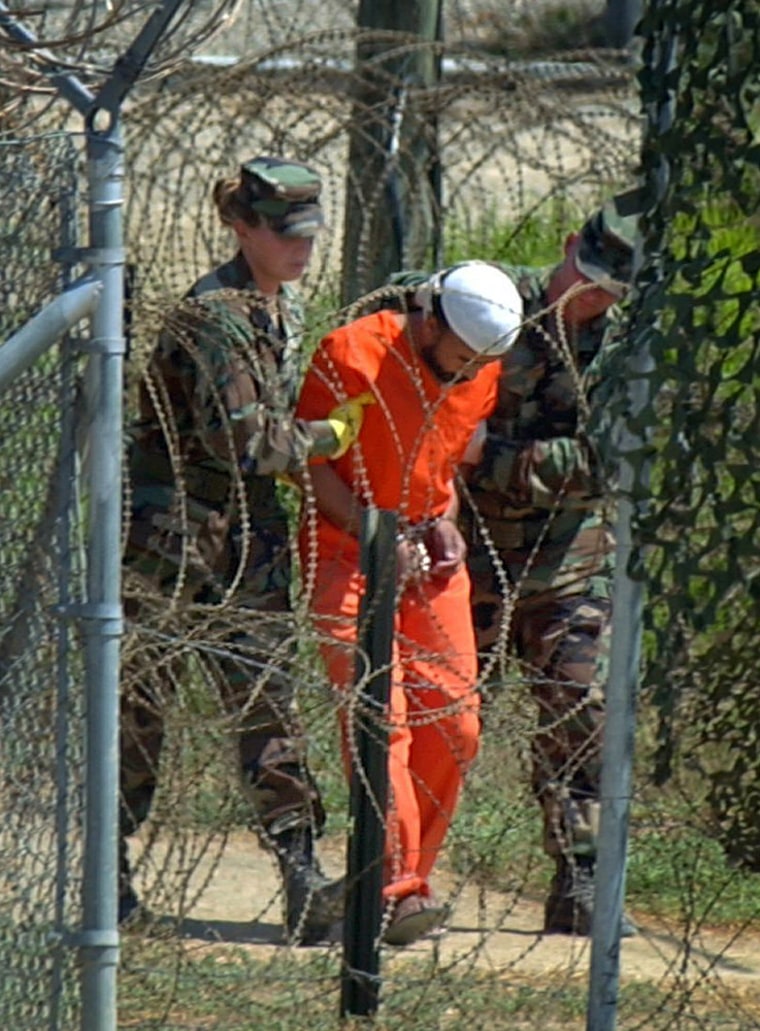In the face of growing criticism over the treatment of detainees, Pentagon officials have decided to make public all of the military’s interrogation techniques.
The decision, which comes after months of internal debate and pressure from members of Congress, would reveal interrogation tactics in a long-awaited revision of the Army Field Manual, despite arguments that it could allow enemy prisoners to better resist questioning.
Defense officials, who spoke on condition of anonymity because the decision is not public yet, said Tuesday that the Pentagon had dropped plans to keep some interrogation techniques secret by putting them in a classified section of the military manual.
The two senior officials said there will not be a classified section in the manual. One of the officials said descriptions of interrogation techniques initially planned for the classified section are either being made public or are being eliminated as tactics that can be used against prisoners.
Rights groups hail decision
One human rights group hailed the decision as a welcome victory.
“I think this is huge — it’s a very significant step toward creating the kind of clarity in the rules that military personnel have said that they lack, and that led to a lot of the abuses,” said Elisa Massimino, Washington Director for Human Rights First.
Military leaders had argued that making all of the interrogation tactics public would allow enemy combatants to train and prepare for specific techniques.
The military’s treatment of detainees has been under increased scrutiny since the Abu Ghraib prisoner scandal in Iraq became known two years ago. Photographs that surfaced at the time showed U.S. troops beating, intimidating and sexually abusing prisoners.
Human rights groups have also called for the Bush administration to close the detention center at the U.S. naval base in Guantanamo Bay, Cuba, where three detainees committed suicide late last week.
Last month, several members of Congress privately cautioned the Pentagon against including a classified section for interrogation details. The debate has contributed to the long delay in releasing the manual, which has been in the works for more than a year.
Lawmakers argued that including a secret section that would detail what interrogators can and can’t do to prisoners could fuel concerns both at home and abroad that the U.S. military was hiding torture techniques that violate the law or rules governing detainee treatment.
'Fueling a worldwide wave of hatred'
In a letter last week to Secretary of State Condoleezza Rice, Rep. Marty Meehan, D-Mass., said the U.S. could suffer if the manual did not reflect the Geneva Conventions requirement for human treatment of detainees.
“By perpetrating human rights abuses in the name of the Global War on Terror we are in fact fueling a worldwide wave of hatred and violence against the United States,” said Meehan. “To regain credibility in the world we need to act in the same manner that we speak.”
As originally planned, the classified section would have included details such as how long prisoners can be forced to sit or stand in certain positions or how hot or cold their holding areas can be kept. The defense officials did not say which interrogation techniques would be included in the manual.
Opponents said greater transparency would dispel suspicions that the military was trying to exploit legal loopholes.
Defense Secretary Donald H. Rumsfeld said for the first time last month that officials were at odds over whether the manual should endorse different interrogation techniques for enemy insurgents than are allowed for regular prisoners of war.
There are concerns such a distinction could violate a law enacted last year that explicitly banned cruel, inhuman or degrading treatment of prisoners by U.S. troops.
Massimino, of Human Rights First, said that the new law, pressed by Sen. John McCain, R-Ariz., would ensure that any interrogation technique not included in the manual would be considered illegal. She said it also would help clear up any confusion troops may have had over what tactics are allowed.
